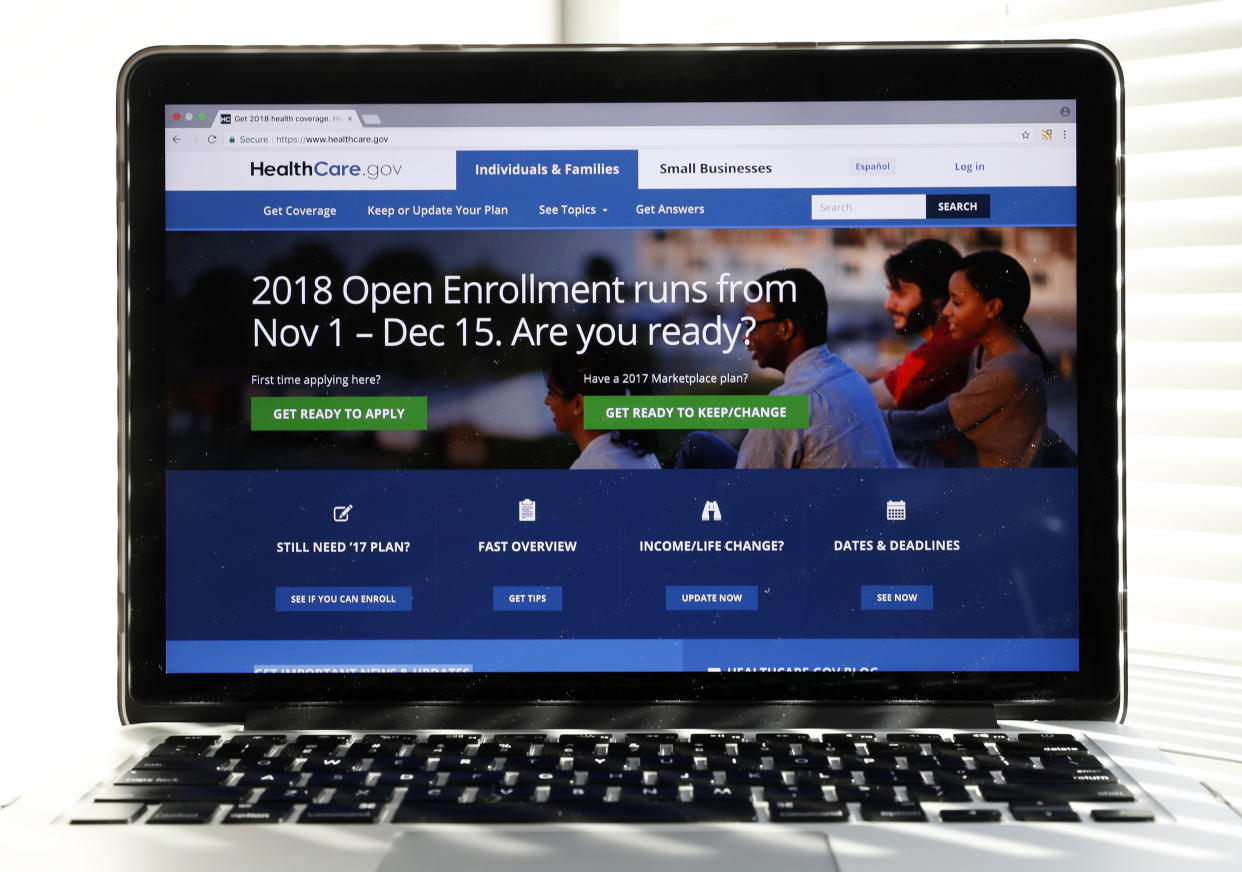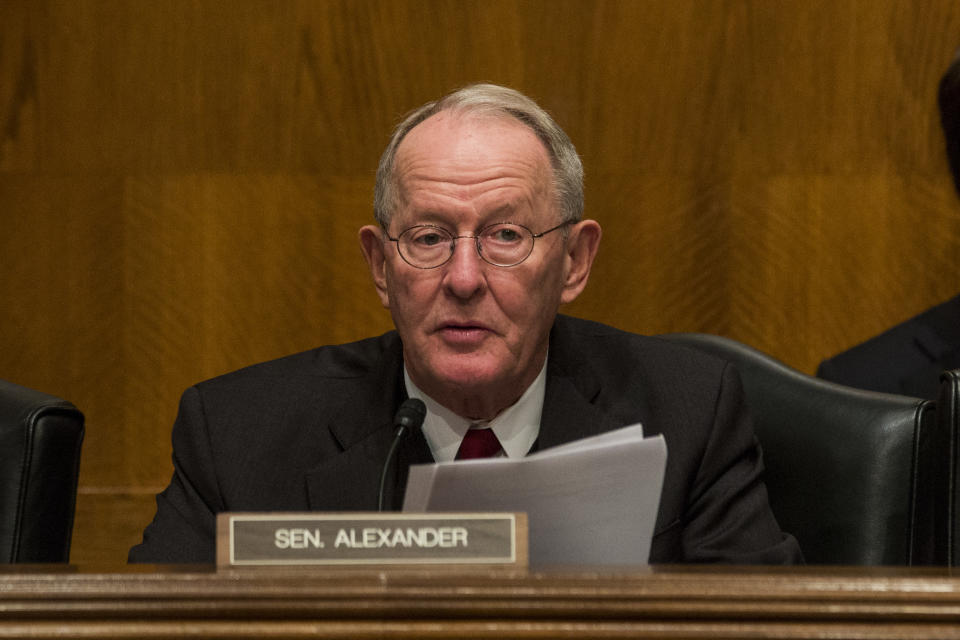GOP senators back Obamacare stabilization as Trump sends mixed messages

WASHINGTON — Twelve Republican senators signed on to a bill that would stabilize the Obamacare individual markets despite mixed messages from President Trump about whether he was happy with the legislation or not.
Sen. Lamar Alexander, R-Tenn., the chair of the Senate committee that oversees health care, announced Thursday that 11 of his GOP colleagues had agreed to be co-sponsors to the bipartisan deal he hammered out with Sen. Patty Murray, D-Wash. Millions of Americans who do not receive health care from their employers buy insurance in the government-run exchanges of private insurance.
The deal would restore billions of dollars of cost sharing reduction payments to insurance companies that Trump abruptly announced he would cut off last week, sparking fears of a 20 percent increase in premiums and some insurers fleeing the markets altogether. It would also give back $106 million in outreach funds to boost enrollment that Trump had slashed. In exchange, Democrats budged on flexibility for states, agreeing to allow catastrophic “copper plans” to be sold to all age groups and to speed up the process by which states could get waivers to offer different kinds of plans to consumers.
Democrats also produced 12 co-sponsors for the legislation, but it’s likely that many more members of their caucus would vote for the bill if it makes it to the floor. Garnering more Republicans votes is trickier, however, as several GOP lawmakers have said they believe the bill isn’t conservative enough, including the leader of the House Republican Study Committee, Rep. Mark Walker, R-N.C. Sen. Ron Johnson, R-Wis., is working on a competing proposal that he says would offer states more flexibility to win over conservative support.
“What’s conservative about creating chaos so that millions can’t buy insurance?” Alexander asked on the Senate floor.
On Tuesday, the president appeared to signal support for the bipartisan deal, saying it was a “short term” solution until Obamacare could be repealed entirely. Alexander told reporters that the president liked the bill. Wednesday morning, however, Trump tweeted that he could “never support” bailing out insurance companies, scrambling things on Capitol Hill.
I am supportive of Lamar as a person & also of the process, but I can never support bailing out ins co's who have made a fortune w/ O'Care.
— Donald J. Trump (@realDonaldTrump) October 18, 2017
As the president’s tone shifted, so did Republican senators. Sen. John Thune, R-S.D., a member of GOP leadership, said Tuesday that the deal “ may be the best way to go forward” until an Obamacare repeal could be passed. By Wednesday, however, he told reporters the agreement had “stalled out.”

On Thursday, Trump’s tone changed again. He told reporters in the Oval Office he had “great respect” for Alexander and Murray and hoped they would come up with a “short term solution” to the problem. “What I did say though is, I don’t want the insurance companies making any more money than they have to,” Trump added.
“I like people working on plans at all times,” the president said.
The Republicans backing the legislation include holdouts to former Obamacare repeal efforts such as Sens. John McCain of Arizona, Lisa Murkowski of Alaska and Susan Collins of Maine. Also backing the plan are Sens. Lindsey Graham, R-S.C., and Bill Cassidy, R-La., who created their own version of Obamacare repeal and replace that they are trying to pass next year.
“I talked to him last night, I think he’s very open-minded to continuing CSRs if he can get a good deal,” Graham said of Trump’s support for payments to insurers. “Here’s what I told him: If Graham-Cassidy were passed tomorrow it’d be two or three years before it’s implemented. In the meantime, you’ve got to keep the system afloat.”
It’s still unclear if or when Senate Majority Leader Mitch McConnell, R-Ky., will bring the bill to the floor for a vote. Open enrollment for the Obamacare individual markets begins Nov. 1.
Read more from Yahoo News:



